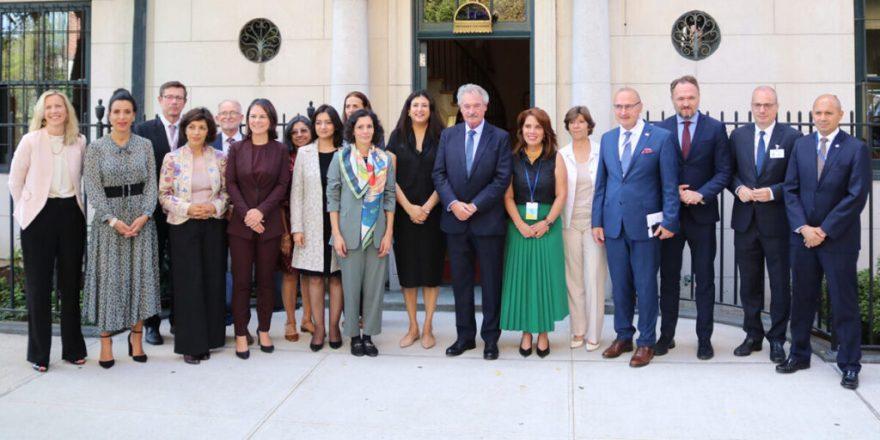
12 Foreign Ministers condemn Taliban’s systematic discrimination against women in Afghanistan
Foreign ministers from 12 nations issued a joint declaration on Tuesday, calling for an immediate halt to the Taliban’s systematic discrimination against women in Afghanistan.
This meeting occurred during the inauguration of the 78th session of the UN General Assembly in New York.
The declaration came after a ministerial-level meeting hosted by the Global Centre for the Responsibility to Protect, Open Society Foundations, and the governments of Albania, Belgium, Cabo Verde, Costa Rica, Croatia, Denmark, France, Germany, Guatemala, Liechtenstein, Luxembourg, Malta, and Spain.
In the joint declaration, ministers voiced deep concern over the Taliban’s gender-based persecution in Afghanistan since regaining power in August 2021. They emphasized the systematic marginalization of women and girls through targeted edicts.
Citing UN Women data, the ministers noted that nearly half of Afghan women faced domestic violence, impacting their mental health. They called for accountability for Taliban actions, “strongly condemning” decisions violating women’s rights, such as banning their employment with the UN and NGOs. This ban hinders aid delivery, endangering Afghan lives, especially female-headed households. They labelled this discrimination as systematic and potentially a crime against humanity.
Meanwhile, under the oppressive rule of the Talian regime, a dark cloud of gender discrimination has descended upon the country. They have implemented a series of draconian policies to systematically deprive women of their fundamental right to education, relegating them to the confines of their homes.
This cruel and regressive approach not only stifles the potential and aspirations of half the population but also undermines the progress and prosperity of the entire society.
The ministers urged the Taliban to lift restrictions, uphold humanitarian principles, and cease “egregious violations of human rights and freedoms.” They called for free and equal access to public life, education, work, and fundamental rights for women and girls. Furthermore, they demanded restoring civic space for NGOs, civil society, human rights defenders, journalists, and media workers to operate without hindrance.
To secure lasting peace and prosperity in Afghanistan, the ministers emphasized the necessity of an inclusive political system encompassing all Afghans, including women, girls, and ethnic and religious minorities. They also called on Afghanistan to fulfil its obligations under international human rights agreements, such as the Convention on the Elimination of all Forms of Discrimination against Women.
In conclusion, they extended their solidarity to the Afghan people, especially women and girls, in their pursuit of a brighter future.
Source » khaama





